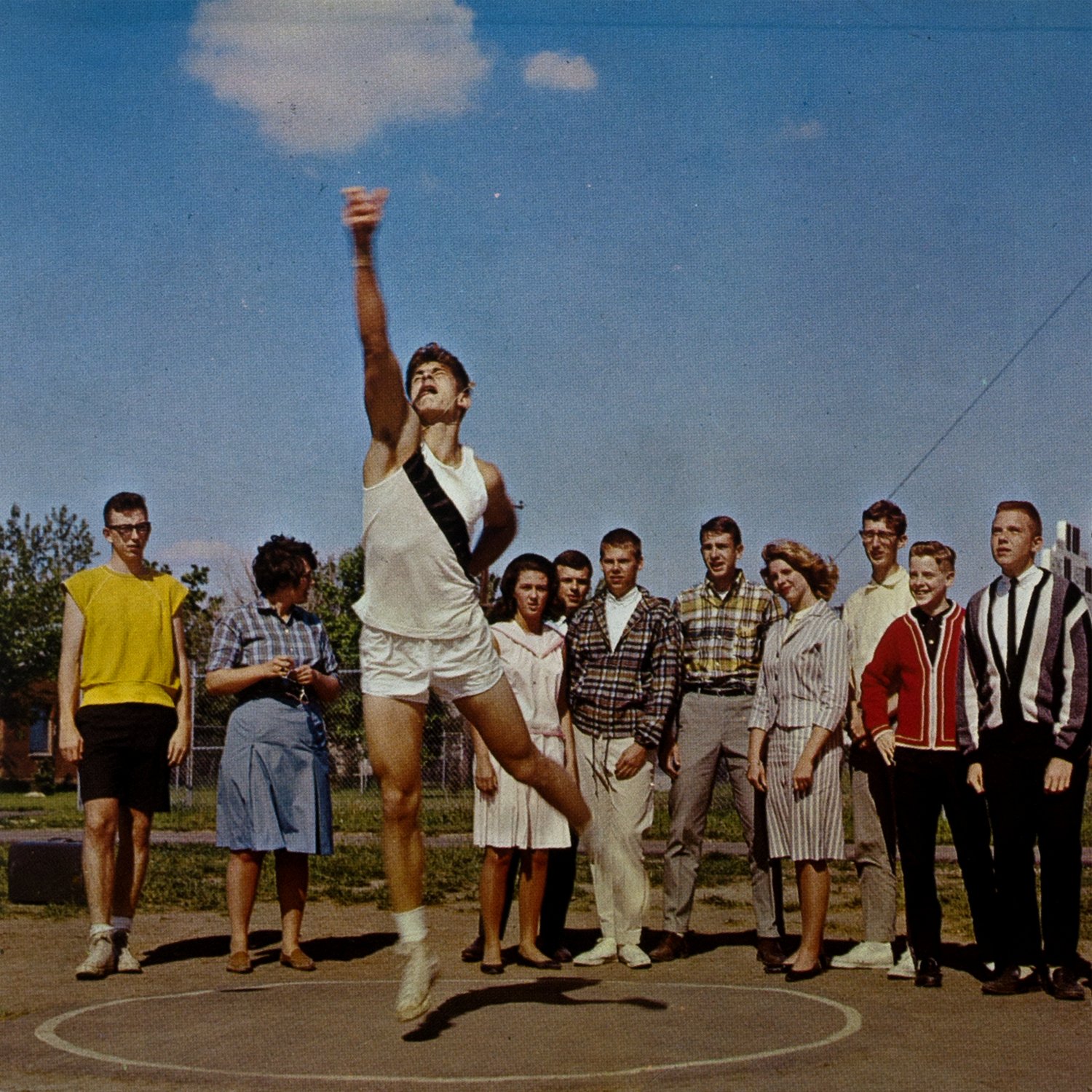by Christopher J. Lee (@joonhai)
At this point in their esteemed career, Guided By Voices have become seasonal. There is an equinox manner in which their LPs appear with little fanfare, reminding you of Bob Pollard et al.’s perseverance and the annual passage of time. Nowhere To Go But Up is their third album this year (this year!) following Welshpool Frillies over the summer and La La Land from last winter. Added to this routine schedule, with over three dozen LPs, numerous EPs, compilations, and other ephemera, Guided By Voices have practically become review proof. Without serious academic commitment and annotated analysis (see the Guided By Voices Database or Zeppelin Over Dayton: Guided By Voices Album By Album by Jeff Gomez for reference), it is nearly impossible to rank one album over another with any precise meaning.
That said, Nowhere To Go But Up is a good, if not great, late career GBV album. Unsurprisingly, it lacks the energy and novelty of their canonical albums from their 1990s heyday – I’m thinking here of Propeller, Vampire on Titus, Bee Thousand, and Under the Bushes Under the Stars (I’m less a fan of Alien Lanes but that’s another review). This absence of newness is, of course, unavoidable. Still, there is a predictable nature to the compositions and tracking on this LP that leaves the listener with the impression that this is not Pollard at his most inspired. On first listen, I was reminded of Bob Dylan’s The Original Mono Recordings, which consists of songs that Dylan recorded for the purpose of copyright protection. This album initially had that functionalist feel of getting material out for business purposes.
Nowhere To Go But Up does grow on you, however. The cheeriness of the opening track, “The Race is On, the King is Dead,” is underscored by a bell. Perhaps a seasonal Christmas bell? The album’s release date does coincide with Black Friday. The tracks that follow like the valedictory “Puncher’s Parade” and “Local Master Airplane” revisit familiar GBV themes regarding the proverbial underdog and/or the 4th grade (Pollard worked as a public-school teacher for decades), driven by insistent power chord riffs. This approach culminates midway through the album with the heavy rush of “Stabbing at Fractions,” which may be the best song on the album.
The provisional Side B of Nowhere To Go But Up starts with “Love Set” – there are eleven tracks total at 39 minutes – which mixes things up with its shifting melodies and rhythms during the first two minutes. There is a minor-key 1970s hard rock/prog rock focus for the remainder of the album, replacing GBV’s frequent attention to 1960s garage/pop that inhabits a good size of their back catalog. This darker and more digressive material on the LP’s second half is similar to that found on La La Land (e.g. “Instinct Dwelling”) and Welshpool Frillies (e.g. “Romeo Surgeon”). The (partly) proto-metal “Jack of Legs,” the Zeppelinesque “For the Home,” and “Cruel for Rats” with its shades of Deep Purple, Bowie circa The Man Who Sold the World, and Bad Company bring this point home. I’m groping here. There’s a lot going on with these last songs, but let’s be honest: at this point it all sounds like Guided By Voices.
Taken together, there are no B-sides per se on Nowhere To Go But Up but that doesn’t necessarily mean these tracks are all A-sides. Nothing approaches the epic tone and beauty of “Queen of Spaces” from La La Land. I also like this album less than Welshpool Frillies, which is excellent in many respects – the swagger of “Cats on Heat” and the hard rock romanticism of “Better Odds” – but I haven’t been listening to this one as long. The songs on this album average around three minutes and above, which make them small epics compared to many GBV compositions. The title Nowhere To Go But Up seems brain dead, frankly, perhaps taking all of ten seconds to conjure, but there is stiff competition with preceding LP titles like Half Smiles of the Decomposed, which probably took thirty or forty seconds.
The Guided By Voices archive resembles a murmuration by now with thousands of melodies and ideas flocking together to create a singular movement, in which individual elements matter less than the beauty created by the entire whole. Nowhere To Go But Up is a minor, but essential, part of this greater entity. My only remaining question is: How does Pollard remember all his lyrics?

